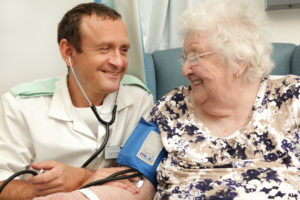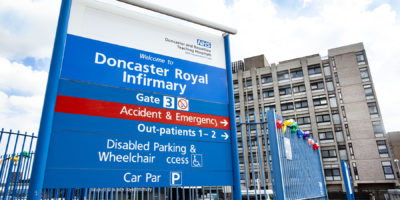 This year’s campaign primarily focuses on four key areas to support people to stay well, taking control over their own health and providing a number of options to enable people to choose the right services for their health and care needs.
This year’s campaign primarily focuses on four key areas to support people to stay well, taking control over their own health and providing a number of options to enable people to choose the right services for their health and care needs.
Doncaster Clinical Commissioning Group, Rotherham, Doncaster and South Humber NHS Foundation Trust, Doncaster and Bassetlaw Teaching Hospitals NHS Foundation Trust, Doncaster Council and Age UK Doncaster have joined forces to reinforce the importance of looking after yourself and others this winter in attempt to spread these important messages far and wide.
The campaign, ‘Help us help you – stay well this winter’ aligns with the national NHS campaign, providing information, advice and guidance for people at a local level.
Cold weather can be seriously bad for your health. That’s why it’s important to look after yourself, especially during the cold winter months. If you start to feel unwell, even if it’s a cough or a cold, don’t wait until it gets more serious. Seek advice from your pharmacist.
Seasonal coughs and colds are very common during the winter period. You can ask your pharmacist what medicines should be in your cabinet and how to help you and your family get through the winter season.
Many over-the-counter medicines (including paracetamol and ibuprofen) are available to relieve symptoms of common winter ailments such as cold, sore throat, cough, sinusitis or painful middle ear infection (earache). You can always seek advice at the first sign of a cough or cold before it gets more serious.
At this time of the year, flu is a common virus that spreads rapidly. Doncaster’s winter campaign places a focus on flu, particularly the importance of getting a flu jab if you have a long term health condition or if you are over 65.
For many people, a bout of flu makes you feel miserable but it’s not a serious illness. If you are generally healthy, you will usually recover from it within a week. But some people are more at risk of developing potentially serious health problems from flu, such as bronchitis, pneumonia and sometimes death.
Dr David Crichton, Chair of NHS Doncaster Clinical Commissioning Group said: “A flu jab not only helps protect you from the virus, it will also help protect your family and friends. Many people don’t have any side effects – some may develop a cold or slight temperature but this should settle without treatment in a couple of days.
“This year, there are three forms of the flu vaccine; nasal drops for young children, and the usual jab for those under 65 years of age. For those over 65, there’s a new more effective version of the jab. I would encourage everyone who is eligible for the flu jab to have one – visit your local GP or pharmacist.”
During the winter months and particularly over the Christmas and New Year period, we see an increase in the number of people requesting urgent repeat medication.
If you take regular prescribed medication, it is important to ensure you have enough in case you cannot leave your home – either due to the weather or in case you don’t feel well
In the event that you do run out of prescribed medication, please contact your local pharmacist or NHS 111 who should be able to assist with an emergency supply.
David Purdue, Chief Operating Officer at Doncaster and Bassetlaw Teaching Hospitals, NHS Foundation Trust said: “During the cold winter months, our emergency departments can get very busy. Adverse weather conditions can lead to accidents and cause complications with existing health conditions, so it’s important that we make the best use of available health services, only attending A&E when it is absolutely necessary and keeping these emergency services free for those who need it most.
“Earlier this year, a survey of our local communities revealed that some people in Doncaster choose to use A&E for minor conditions that could be treated elsewhere. By opting to attend a minor injuries unit, a GP or a pharmacy instead, you could free up resources in the emergency department to offer life-saving treatment for serious conditions.”
The campaign will run until the middle of January 2019, using a range of channels such as social media, video, Facebook, radio, online advertising, posters and leaflets.
For more information about the campaign, visit www.doncasterccg.nhs.uk/winter, get involved in the conversations on twitter, using the hashtag #doncasterwinter18



